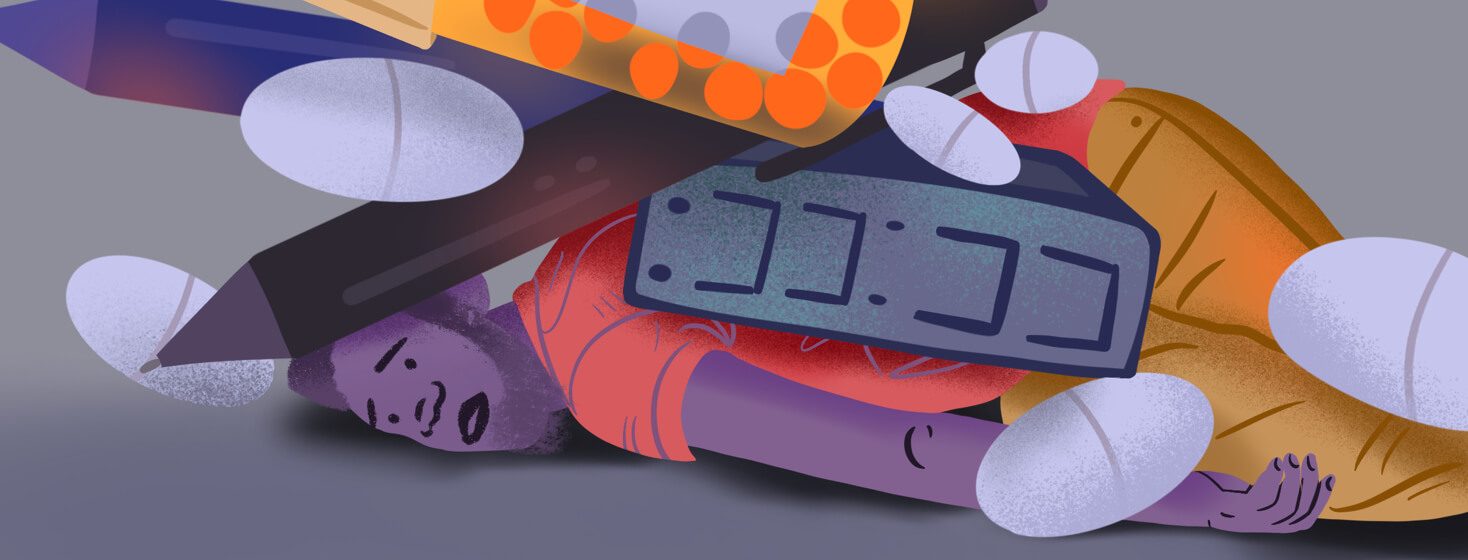Working with Migraine Disease
Migraine disease is a horrible and progressive disease. It affects each of us in different ways. We learn to cope as best we can, but holding a job down with migraine can be quite a challenge. I suffered with episodic migraine for years, and I gradually progressed into chronic, intractable migraine. It made my challenging career in retail a daily battle. I had developed some unhealthy coping skills, such as taking Tylenol and Ibuprofen like candy to help me push through the days. My supervisors didn’t know about my migraine attacks because, like many of us, I kept it hidden from them. That was not a smart move.
Opening up about migraine to my employer
I remember sitting down with my supervisor one afternoon and spilling the beans about my disease. It was one of the most difficult conversations I’d ever had, but overall had the biggest positive impact on my life. I felt like a great weight had been lifted off my soul. It didn’t make my job any easier, but I did leave that meeting with a good piece of advice. My supervisor told me to apply for the Family Medical Leave Act or FMLA. That type of leave protects a person’s job when they have to be out for their own illness or take care of a significant other such as a spouse or child. I applied specifically for "intermittent" as it gave me the flexibility to take the leave in small bits as needed to cover my attacks.
FMLA requirements
FMLA leave has some requirements you have to meet, according to the US Department of Labor. First, you have to work for a covered employer. You must have worked for that employer for at least 12 months. It requires you to have worked 1,250 hours during that 12-month period. Lastly, your employer must have at least 50 employees working within 75 miles. For me, that was not a problem as I worked 50-hour workweeks, and the company I worked for was huge and had several locations. I felt empowered by having FMLA protection. My migraine-related absences were protected, which was a huge relief to me. I was then able to really start caring for myself, even if it was too little too late in my case.
My work absences were adding up
I transitioned from episodic migraine to chronic, intractable migraine before I was able to really use FMLA to my full advantage. I didn’t practice self-care in conjunction with the FMLA protections until I was chronic. Migraine wore me down and the days I was not at work started to add up quickly. I was burning through my banked time off each month as the company required you to use your personal time to cover the time you were away from work until you had none left, and then time went unpaid. In my opinion, it was still worth using the protection of FMLA. I continued to utilize it until I eventually had to retire due to my illness, combined with some other complications.
Taking care of yourself should be a priority
It was a long, hard road going to work each day fighting migraine. It stretched me as a person and as a supervisor. Migraine has a way of making you far more resilient than you ever thought you could be. You go into warrior mode and push through attack after attack, but at some point, you have to stop and take care of yourself. Yes, FMLA was a great tool for me. I just wished I had used it earlier. If you are struggling in your workplace, I would encourage you to investigate FMLA. It just may be what you need to survive.

Join the conversation